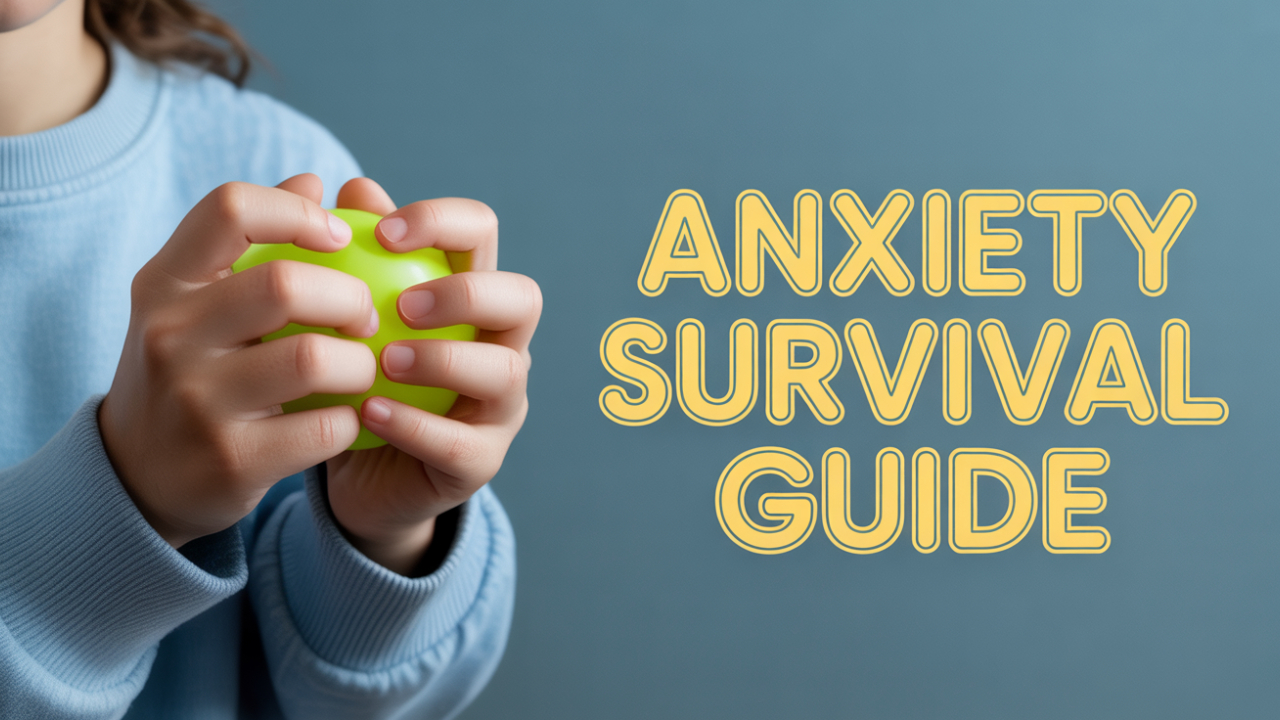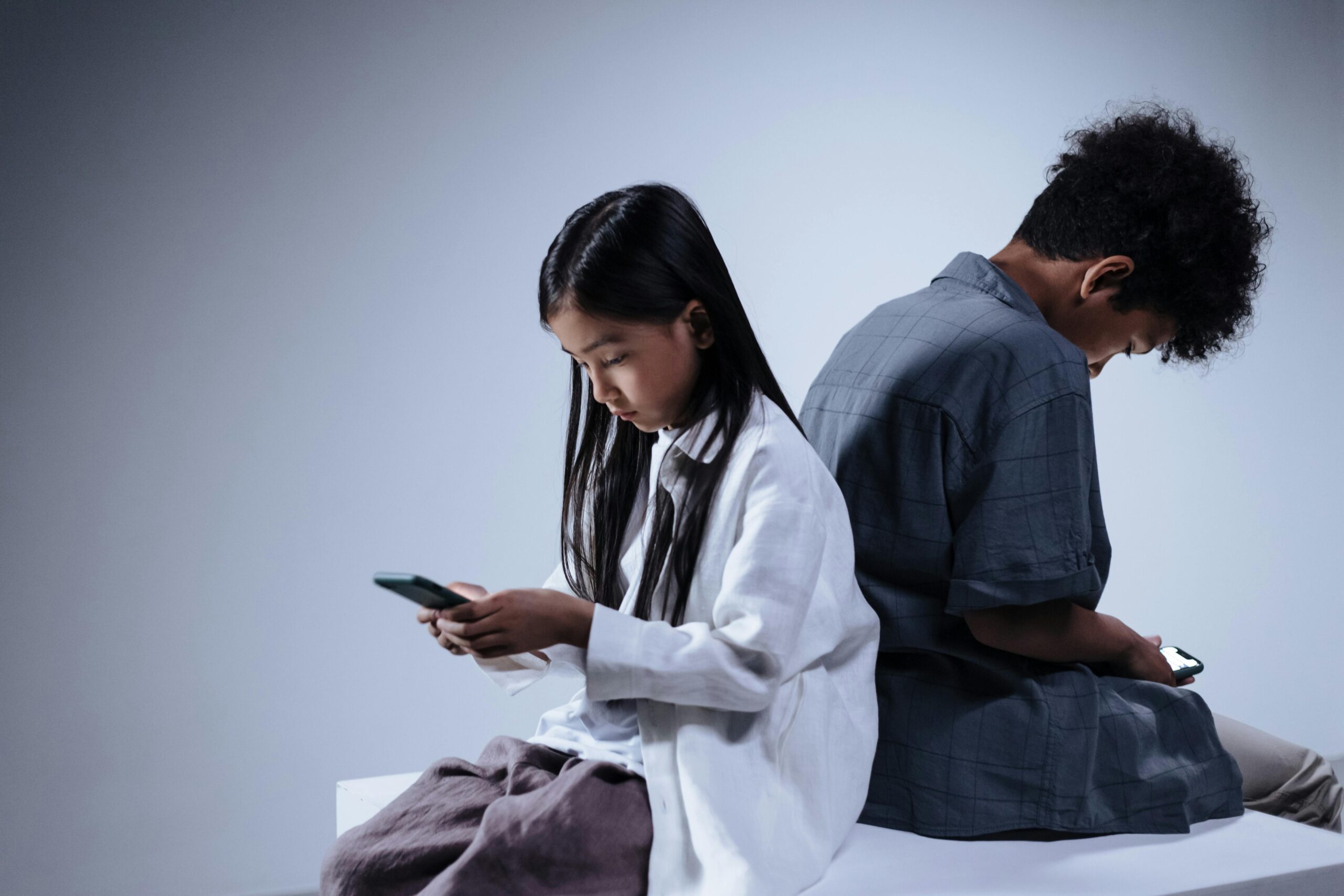Feeling nervous, scared, or overwhelmed can happen to anyone. But if those feelings don’t go away and start to affect your daily life, it may be more than just stress. That’s why online anxiety treatment can help. Our virtual program is made for teens ages 12 to 17 and offers help from caring, licensed mental health professionals—all from the comfort of home in Laguna Hills, California.
We understand what teens go through. Whether it’s social anxiety, panic attacks, or just feeling worried all the time, we’re here with a team that listens and offers quality of care you can trust. Serving teens across California including Orange County, Laguna Hills, Irvine, Mission Viejo, and surrounding communities.
Anxiety is a strong feeling of fear or worry. It can happen when you’re nervous about school, friends, or even things like speaking in public. But when those feelings don’t go away and start causing physical symptoms like shortness of breath, muscle tension, or trouble sleeping, it might be an anxiety disorder.
There are different types of anxiety disorders, like:
Individuals with anxiety may also have trouble focusing, feel tired all the time, or avoid doing things they used to enjoy.

Anxiety affects every teen differently. Some may feel constant worry, while others experience sudden panic or fear in social settings. Our program helps teens identify their anxiety type so treatment can target the right symptoms.
We commonly treat:
Generalized Anxiety Disorder (GAD): Ongoing, excessive worry about school, friends, or family life.
Social Anxiety Disorder: Fear of judgment or embarrassment in social or classroom situations.
Panic Disorder: Repeated panic attacks with physical symptoms like chest tightness, dizziness, or a racing heartbeat.
Separation Anxiety Disorder: Feeling extreme distress when away from parents or caregivers.
Phobias: Intense fear of specific things, like driving, crowds, or medical visits.
Performance Anxiety: Nervousness linked to grades, sports, or music performance.
Each anxiety type responds differently to therapy, which is why personalized care is essential.
Online treatment is a simple and safe way to get help. You can talk to a licensed therapist, nurse practitioner, or psychiatric provider over a video visit or even through unlimited messaging.
We make mental health care easy to access with:
Your online therapy may include different treatments for anxiety like:
We also help with depression treatment, postpartum depression, and other mental health conditions like bipolar disorder, obsessive-compulsive disorder, or affective disorder.

You may benefit from online anxiety treatment if you notice:
These are common mental health symptoms, and you’re not alone. Many teens with anxiety feel this way. Getting help can improve your quality of life and teach you new anxiety management skills.
Anxiety that starts in adolescence can affect school, friendships, and emotional growth. Getting treatment early helps teens build coping tools before anxiety becomes overwhelming.
Early care can:
Reduce long-term anxiety and depression risks.
Improve focus, attendance, and school performance.
Strengthen family relationships and communication.
Prevent isolation, withdrawal, or self-harm behaviors.
Our goal is to help teens gain confidence and balance before anxiety begins to shape their daily routines.
We’re more than an online therapy company. We care about helping teens feel safe, seen, and supported. When you join our program, you get access to:
We also offer help for domestic violence, trauma, and tough family issues like Couples therapy or Family Therapy support sessions.

Your treatment starts with an initial psychiatry session or medical consultation. A licensed professional will talk with you to understand what you’re going through. They’ll then create a treatment plan just for you.
Your plan may include:
Every step is guided by a trained team who specializes in teens’ mental health.
Parents play an important role in helping teens recover from anxiety. Our virtual sessions often include optional parent or family check-ins to share progress and improve communication.
We teach parents how to:
Recognize triggers and respond calmly.
Support homework or therapy goals at home.
Encourage healthy routines like sleep, nutrition, and social connection.
Practice positive reinforcement instead of criticism or pressure.
With family understanding and participation, teens feel supported and more willing to stay consistent in treatment.

Our licensed therapists use evidence-based treatments that help teens manage anxiety in practical ways.
Cognitive Behavioral Therapy (CBT): Helps teens identify negative thoughts and replace them with more balanced thinking.
Dialectical Behavior Therapy (DBT): Focuses on emotional regulation, mindfulness, and distress tolerance.
Exposure Therapy: Reduces fear by safely introducing anxiety triggers in a controlled environment.
Mindfulness Therapy: Teaches relaxation and awareness techniques to calm racing thoughts.
Supportive Therapy: Builds confidence through open conversation and emotional validation.
Each therapy method is adjusted to match the teen’s comfort level and pace.
Our virtual teen anxiety treatment is built for accessibility and comfort. Teens can connect with a licensed therapist from home, reducing the fear or pressure of in-person sessions.
Benefits include:
Consistent weekly sessions that fit school schedules.
A safe space for honest conversation.
Privacy and flexibility for teens who prefer online communication.
Long-term coping strategies for anxiety management and emotional health.
Our goal is to help every teen feel heard, supported, and equipped to face challenges with confidence.
You don’t need to go to a clinic. You don’t need to miss school. You can get expert psychiatric services and care for anxiety disorders from your room.
Teens in Laguna Hills and across California are getting the help they need online—safely, quickly, and privately.
It’s time to reach out for teen anxiety treatment if your child:
Has constant worry that interferes with school or sleep.
Avoids friends, classes, or social events.
Feels physical symptoms like nausea, headaches, or panic.
Struggles with concentration or sudden irritability.
Professional support can prevent anxiety from leading to depression, isolation, or risky coping behaviors. Getting help early makes recovery smoother and more effective.
If you or someone you care about is showing signs of anxiety, don’t wait. Get started with an initial consultation today. Our online anxiety treatment program is here to help teens in Laguna Hills, CA, and across the state live a happier, healthier life.
Reach out now for expert mental health treatment made just for teens—online, simple, and built to fit your life.
Compassionate support, expert guidance, and tailored programs for adolescent mental health.
Connect with Adolescent Mental Health today. Let us guide your teenager towards resilience and well-being.